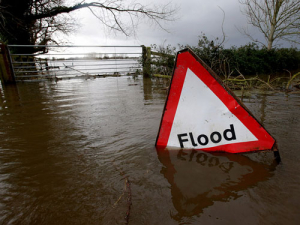Editorial: RMA reforms uproar
OPINION: The euphoria over the Government’s two new bills to replace the broken Resource Management Act is over.
 Federated Farmers are calling for a government inquiry into the causes of the damage to the Gisborne/Tairāwhiti region during ex-tropical Cyclone Hale earlier this month.
Federated Farmers are calling for a government inquiry into the causes of the damage to the Gisborne/Tairāwhiti region during ex-tropical Cyclone Hale earlier this month.
Federated Farmers are calling on the government to establish an inquiry into the factors that contributed to flooding and the destruction of infrastructure in the Gisborne/Tairāwhiti region during ex-tropical Cyclone Hale earlier this month.
In a letter to Emergency Management, the Forestry Minister, and the Associate Environment Minister, Federated Farmers claimed residual woody material left in situ after exotic forestry harvesting had been a contributing factor to increased damage and would need to be part of the brief provided to the inquiry team.
The letter to Ministers recommended holding meetings with Tairāwhiti landowners and residents, and with Gisborne District Council.
"Gaining the community’s view on where they see themselves in the future will be key to improving the long-term economic, social and environmental sustainability of the region," the letter said.
Meanwhile, Federated Farmers national board member and former Gisborne-Wairoa president Toby Williams says no one can do anything about heavy rain.
He says local ratepayers cannot afford the sizable bill required to repair roads and bridges in the region year after year.
He says that in the wake of Cyclone Bola in 1988, tens of thousands of hectares of trees were planted on highly erodible land in the province with the idea of stabilising slopes.
“Now those trees are being harvested, re-exposing those slopes,” Williams says. “The storms haven’t changed – in fact they’re more frequent. And they are exposing current harvesting practices and the detrimental effects they are having on downstream catchments and communities.”
He claims that under current government regulations, mass plantings of exotics are encouraged, especially in the Gisborne region.
“If, as we are being led to believe, they are all going to be harvested, then there needs to be an urgent rethink on how and where we harvest to ensure we will not repeat the issues when the next cycle of logging looms,” he says.
Williams says forestry operators are aware of the problem.
“They’ve improved and to be fair to them, like everyone else they’re keen to see some blue skies,” he says.
He adds it’s not always anybody’s fault when slopes fail.
“But if it is skid failure [temporary trails in logging areas], and things like that, then we have to ask questions about those practices that were supposed to have changed after the devastation of the 2018 storm.
“We need to get some inspectors up in the air and observe where all the debris has come from, and then what our pathway is going to be going forward,” Williams says.
The Meat Industry Association of New Zealand (MIA) today announced that Chief Executive Officer Sirma Karapeeva has resigned from the role.
The winners of the 2026 Hawke’s Bay/Wairarapa Dairy Industry Awards were announced at the annual awards dinner held at Copthorne Solway Park in Masterton on Thursday evening.
Environment Southland is welcoming this week’s decision by the Environmental Protection Authority (EPA) to approve the release of Blaptea elguetai, a leaf‑feeding beetle that will help control the highly invasive Chilean flame creeper.
This March, the potato industry is proudly celebrating International Women’s Day on 8 March alongside the International Year of the Woman Farmer, recognising the vital role women play across every part of the sector — from paddocks and packhouses to research, leadership, and innovation.
Fruit trader Seeka posted a record profit and returns to shareholders in 2025.
Recent weather events in the Bay of Plenty, Gisborne/Tairawhiti, and Canterbury have been declared a medium-scale adverse event.

OPINION: A mate of yours truly reckons rural Manawatu families are the latest to suffer under what he calls the…
OPINION: If old Winston Peters thinks building trade relations with new nations, such as India, isn't a necessary investment in…